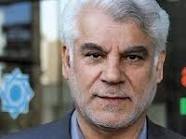 Iran’s Central Bank Governor Mahmoud Bahmani rejected claims of illegal movements of money by a Tehran court, which ruled that he should be dismissed, state- media reported.
Iran’s Central Bank Governor Mahmoud Bahmani rejected claims of illegal movements of money by a Tehran court, which ruled that he should be dismissed, state- media reported.
The withdrawals were legal and had the government’s backing, Bahmani said. “The matter of withdrawing from bank accounts by the Central Bank was fully in line with the government’s approval and all documents are available,” he was quoted as saying yesterday by the state-run Mehr news agency.
Members of parliament have criticized the Central Bank for failing to stabilize the national currency, which has plunged about 60 percent against the dollar in the past six months. Inflation has quickened and the economy is under strain amid tighter U.S. and European Union sanctions aimed at curbing Iran’s nuclear program.
Some 30 trillion rials ($2.4 billion) were withdrawn from bank accounts to prevent fraudulent actions at certain local lenders and more may follow if needed and upon government approval, Bahmani said. In comments published in today’s edition of Donya-e-Eqtesad, he called his actions “entirely legal.”
“Some banks received foreign currency from the Central Bank at the official rate and sold them on the open market at a higher rate, but the Central Bank withdrew this cash and diverted it to its treasury,” Bahmani was cited as saying.
Rial Slides
Uncertainty about Bahmani’s fate has caused the rial to drop against the dollar in street trading in recent days. Mehr reported late yesterday that a dollar was worth 36,000 rials compared with 34,000 on Jan. 16.
The government of President Mahmoud Ahmadinejad, whom deputies have accused of mismanaging the economy, stood by Bahmani in a statement released late yesterday. The Central Bank’s actions were authorized and intended to prevent “fraudulent foreign-currency transactions,” according to the statement published on the government’s website.
“The Central Bank is under the most intense and unprecedented pressure from international bullies and will hopefully, with the support of other powers in the government, overcome these difficulties,” the government said.
The Supreme Court of Audit, which is accountable to the parliament, blamed Bahmani for “illegal overnight withdrawal of money from bank accounts,” the official Islamic Republic News Agency reported on Jan. 21. The ruling isn’t final and Bahmani has 20 days to appeal, while the government may oppose it and force a review of the verdict, said Rahmatollah Sharifi, the head of public relations at the court, IRNA and Tehran-based Donya-e-Eqtesad newspaper reported.
The ruling was issued after Bahmani failed to turn up for a hearing, the Tehran-based Etemaad newspaper said yesterday. It also came as members of the parliament decided on Jan. 20 to start an investigation into the Central Bank’s reaction to the country’s currency complications, according to a separate Mehr report yesterday.
By Bloomberg
The Iran Project is not responsible for the content of quoted articles.

 QR code
QR code